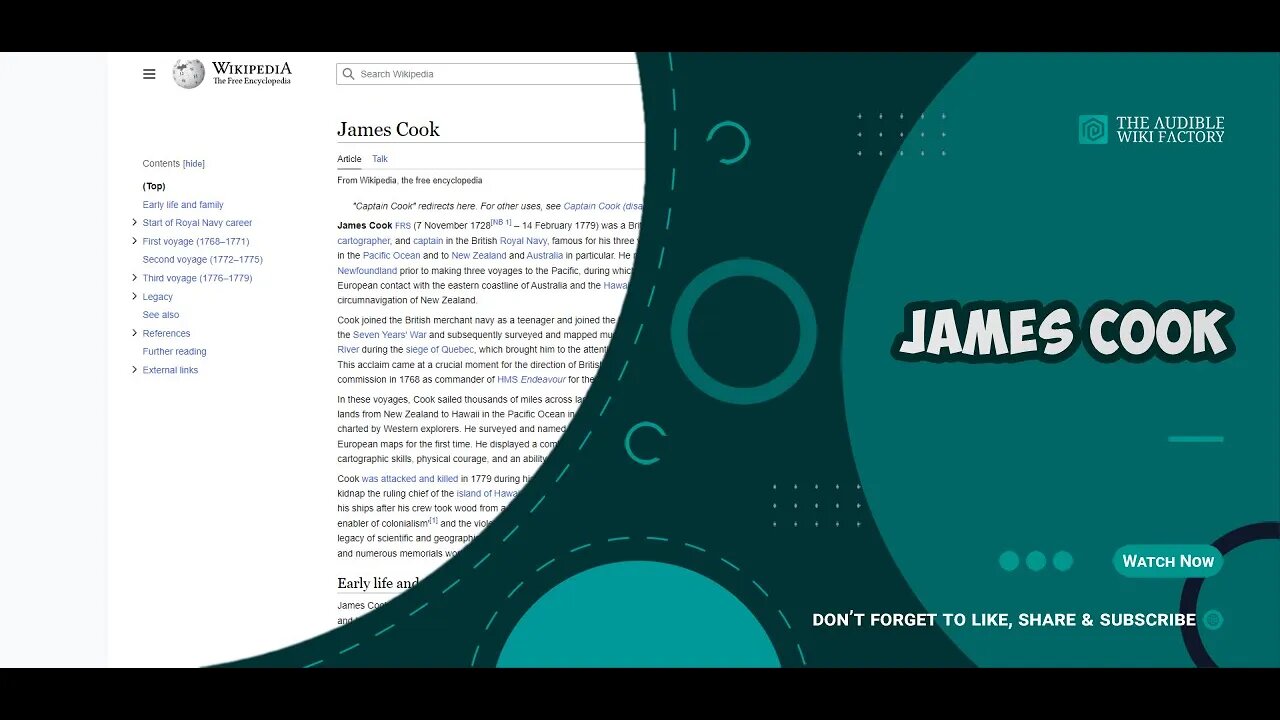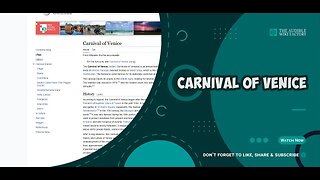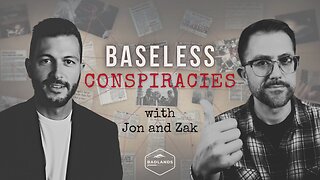Premium Only Content

James Cook was a British explorer, navigator, cartographer, and captain in the British Royal
James Cook was a British explorer, navigator, cartographer, and captain in the British Royal Navy, famous for his three voyages between 1768 and 1779 in the Pacific Ocean and to New Zealand and Australia in particular. He made detailed maps of Newfoundland prior to making three voyages to the Pacific, during which he achieved the first recorded European contact with the eastern coastline of Australia and the Hawaiian Islands, and the first recorded circumnavigation of New Zealand.
Cook joined the British merchant navy as a teenager and joined the Royal Navy in 1755. He saw action in the Seven Years' War and subsequently surveyed and mapped much of the entrance to the St. Lawrence River during the siege of Quebec, which brought him to the attention of the Admiralty and the Royal Society. This acclaim came at a crucial moment for the direction of British overseas exploration, and it led to his commission in 1768 as commander of HMS Endeavour for the first of three Pacific voyages.
In these voyages, Cook sailed thousands of miles across largely uncharted areas of the globe. He mapped lands from New Zealand to Hawaii in the Pacific Ocean in greater detail and on a scale not previously charted by Western explorers. He surveyed and named features, and recorded islands and coastlines on European maps for the first time. He displayed a combination of seamanship, superior surveying and cartographic skills, physical courage, and an ability to lead men in adverse conditions.
Cook was attacked and killed in 1779 during his third exploratory voyage in the Pacific while attempting to kidnap the ruling chief of the island of Hawaiʻi, Kalaniʻōpuʻu, in order to reclaim a cutter taken from one of his ships after his crew took wood from a burial ground. Whilst there is controversy over Cook's role as 'an enabler of colonialism' and the violence associated with his contacts with indigenous peoples, he left a legacy of scientific and geographical knowledge that influenced his successors well into the 20th century, and numerous memorials worldwide have been dedicated to him.
EARLY LIFE AND FAMILY
James Cook was born on 7 November 1728 (NS) in the village of Marton in the North Riding of Yorkshire and baptised on 14 November (N.S.) in the parish church of St Cuthbert, where his name can be seen in the church register. He was the second of eight children of James Cook (1693 to 1779), a Scottish farm labourer from Ednam in Roxburghshire, and his locally born wife, Grace Pace (1702 to 1765), from Thornaby-on-Tees. In 1736, his family moved to Airey Holme farm at Great Ayton, where his father's employer, Thomas Skottowe, paid for him to attend the local school. In 1741, after five years' schooling, he began work for his father, who had been promoted to farm manager. Despite not being formally educated he became capable in mathematics, astronomy and charting by the time of his Endeavour voyage. For leisure, he would climb a nearby hill, Roseberry Topping, enjoying the opportunity for solitude. Cooks' Cottage, his parents' last home, which he is likely to have visited, is now in Melbourne, Australia, having been moved from England and reassembled, brick by brick, in 1934.
In 1745, when he was 16, Cook moved 20 miles (32 km) to the fishing village of Staithes, to be apprenticed as a shop boy to grocer and haberdasher William Sanderson. Historians have speculated that this is where Cook first felt the lure of the sea while gazing out of the shop window.
After 18 months, not proving suited for shop work, Cook travelled to the nearby port town of Whitby to be introduced to Sanderson's friends John and Henry Walker. The Walkers, who were Quakers, were prominent local ship-owners in the coal trade. Their house is now the Captain Cook Memorial Museum. Cook...
LINK TO ARTICLE: http://en.wikipedia.org/wiki/James_Cook
TAGS: James Cook, Q150 Icons, Royal Navy officers, Recipients of the Copley Medal, Persons of National Historic Significance (Canada), People from Middlesbrough, Maritime writers, Hydrographers, Fellows of the Royal Society, Explorers of Washington (state), Explorers of Oregon, Explorers of New Zealand, Explorers of British Columbia, Explorers of Australia, Explorers of Antarctica, Explorers of Alaska, English sailors, English people of Scottish descent, English hydrographers, English explorers of North America, English cartographers, Circumnavigators of the globe, British people executed abroad, British navigators, British military personnel of the French and Indian War, English explorers of the Pacific, Death in Hawaii, 18th-century explorers, 18th-century English people, James Cook
#GeneralKnowledge #AudibleWikiFactory #Audible #Wikipedia #JamesCook
-
 13:12
13:12
The Audible Wiki Factory
2 years agoThe Carnival of Venice is an annual festival held in Venice, Italy. The carnival ends on Shrove
540 -
 LIVE
LIVE
Inverted World Live
3 hours agoSecond-Generation Exorcist | Ep. 89
1,123 watching -
 LIVE
LIVE
Badlands Media
10 hours agoBaseless Conspiracies Ep. 145
19,747 watching -
 2:50:50
2:50:50
TimcastIRL
4 hours agoTrump Deploys National Guard To DC, Federalizes Police, Liberals Protests Take Over| Timcast IRL
184K58 -
 2:27:36
2:27:36
Barry Cunningham
7 hours agoBREAKING NEWS: PRESIDENT TRUMP ABSOLUTELY NUKED WASHINGTON D.C. AND THE MEDIA!
55.8K38 -
 LIVE
LIVE
Drew Hernandez
9 hours agoTRUMP'S DC TAKEOVER & ISRAEL KILLS AL JAZEERA TEAM AHEAD OF GAZA INVASION
685 watching -
 1:19:05
1:19:05
Glenn Greenwald
5 hours agoTrump's DC Takeover: Is it Legal? Israel Kills More Journalists, Including Anas al-Sharif; Glenn Reacts to Pete Buttigieg and JD Vance on Israel | SYSTEM UPDATE #501
116K105 -
 44:40
44:40
Katie Miller Pod
5 hours ago $2.98 earnedEpisode 1 - Vice President JD Vance | The Katie Miller Podcast
38.7K12 -
 13:09:34
13:09:34
LFA TV
1 day agoLFA TV ALL DAY STREAM - MONDAY 8/11/25
210K20 -
 1:44:36
1:44:36
RiftTV
7 hours agoBREAKING: Trump FEDERALIZES D.C. To RESTORE Law & Order | The Rift | Ryan Matta, Olivia Krolczyk + Braeden Sorbo
50.6K16